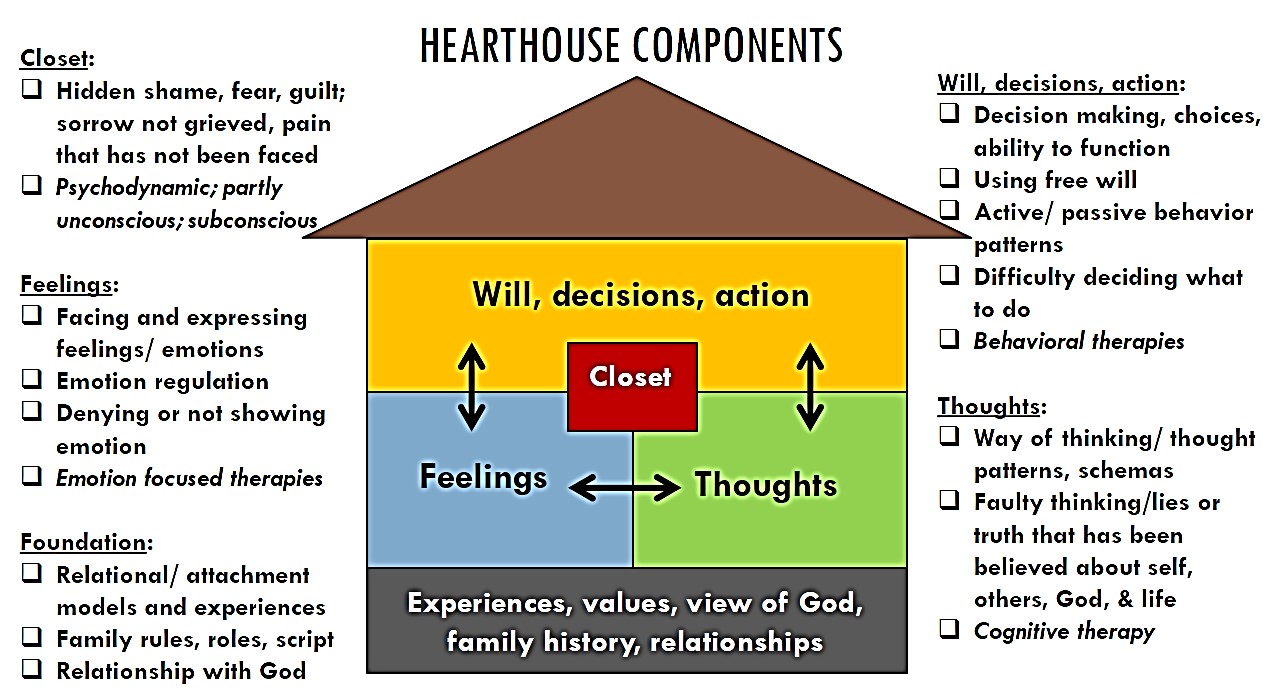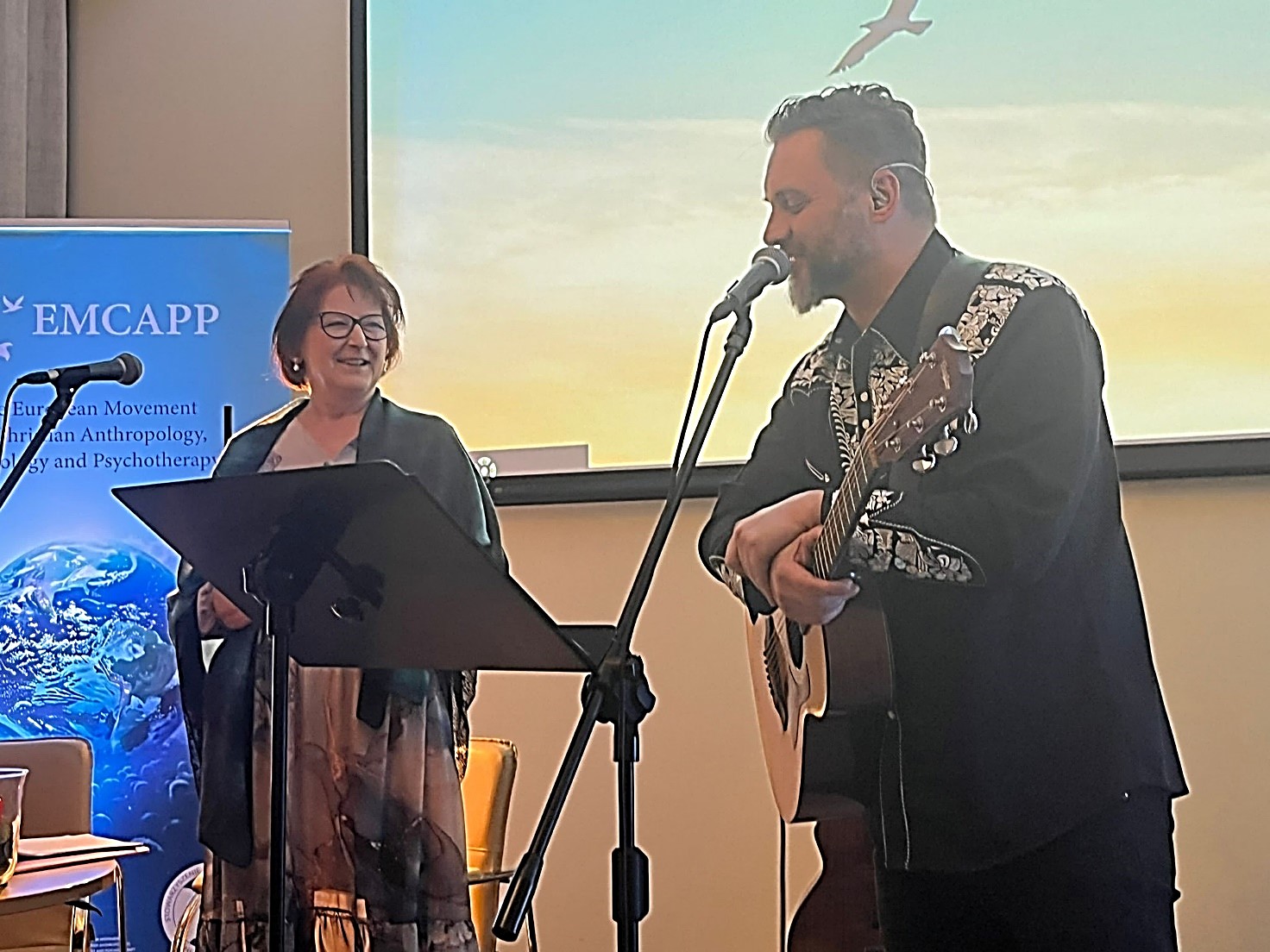Spiritual Aspects in Psychology and Psychotherapy
A Summary
Werner May, the president of EMCAPP welcomed the 23 participants from Finland, Germany, Great Britain, Italy, Latvia, Poland and Spain.
Using the seven statements of EMCAPP (https://www.emcapp.eu/who-we-are) Werner May set the vision for the symposium: "Truth can be discovered in conversation between friends who are different. - We have experienced this at EMCAPP over the decades, and I am pleased to be able to continue this experience at this conference, and not just to see old friends, but to get to know more colleagues from different countries and denominations, for whom it is important to bring together psychology and Christian faith.”
The lecture series opened with Anna Ostaszewska from Poland, Vice-President of EMCAPP: Spiritual Aspects in the Background of Psychotherapy.
Anna Ostaszewska (Poland), psychotherapist, supervisor, lecturer and trainer in psychotherapy is co-founder and the past president of the Association of Christian Psychologists in Poland (www.spch.pl), which organizes this symposium.
Anna reported about actual positions of Psychotherapy and Psychiatry, the Integrative Psychotherapy as a Christian Approach, specific subjects and techniques, and at last about Integration of spiritual dimension in psychotherapy.
Her conclusion: In the last 20-30 years psychotherapy and psychiatry are more and more interested in the importance of spirituality and religiosity in clinical praxis.
Psychotherapist’s attitude should include typical professional knowledge and skills + knowledge about spiritual / religious issues + humility and inner openness for the Holy Spirit.
Małgorzata Surma (Poland), psychologist and psychotherapist, is the vice-president of the Main Board of the Association of Christian Psychologists in Poland (ACP www.spch.pl). Her lecture „Taking into account the patient's spirituality/religion in the psychotherapy process” was about: Distinguishing between spirituality and religiosity and between spiritual/religious maturity and immaturity – How does an anxiety, personality or psychotic disorder affect spiritual/religious experiences – Guidelines for the psychotherapist – and examples from her psychotherapy practice.
Joan D.A. Juanola (Spain) from the University Abat Oliba in Barcelona, Department of Psychology spoke about „The integration of Christian anthropology in the university degree in psychology“
Here is the abstract of his lecture: Most universities seek to offer a technical education to future psychologists, through a thorough formation on methodology, statistics and biology. However, fewer of them offer any humanistic content, and nearly none of them offer an integrated scientific education with humanities.
Christian universities have the responsibility to present their degrees in connection with the Christian message and its anthropological basis, but, usually, they simply offer some subjects on theology or Christian ethics, while the rest of the subjects of the degree remain watertight from the implications derived from the Christian education received. This situation is the result of different causes that could be grouped under the phenomenon so called secularization.
Therefore, it is a must to be conscious about the secularization that scientific knowledge has suffered, that some refer as scientific naturalism, and to claim against the prejudices assumed towards Christian anthropology. This reductive point of view is especially inconvenient in Humanities and Social Sciences, and it has also a big impact in Psychology.
For the sake of truth and mental health, the best way to proceed in psychology degrees is to give an integrated explanation of the human being. Also, this will prepare future therapists to understand better their patients and the common human dilemmas.
Ulla Dahlen (Finland), PhD in Counselor Education and Supervision, presented „The Heart-House Model for Christian Psychotherapy“. The diagram can give you an impression of this model:

Paloma Alonso Stuyck (Spain), Professor at the Abat Oliba CEU University (Barcelona), Doctor in Psychology and Specialist in Family Therapy gave a lecture about „Koumi Project which aims to heal sexual wounds“. In her summary she wrote: ... Sexual wounds are understood in a broad sense, not only including those caused by sexual abuse, but also the damage caused by promiscuity and the trivialization of sexuality. It is not directed at people who are currently suffering sexual abuse, nor at minors, nor at cases involving legal issues.
Promiscuity and the trivialization of sexuality: because of an eroticized social environment, sexual relations begin at a very early age and infidelity or having multiple sexual partners has become normalized. Occasionally, it causes personal imbalances when the person feels they are being treated like an object. When the dignity of the person is hurt, their perception of themselves and the world is altered. This makes it difficult to maintain stable relationships and often leads to toxic, destructive relationships.
In the Koumi Project, it is Christ himself who goes out to meet the wounded person to lift them up and return them to the life of those who know they are loved by God. The training of the project members aims to enable them to provide personal support through theoretical and practical sessions with case analyses and simulations.
We also had several workshops:
- Self-realization or creativity and internal resources by Andrey Lorgus (Bulgaria/Russia)
- Integral psychotherapy of the person, based on the anthropology of Thomas Aquinas by Stefano Parenti (Italy)
- 12 Steps To Living Life To The Full – A 12-Step Recovery Workshop as a Method of Integrating Spirituality in the Practice of Psychological Assistance by Paweł Surma (Poland)
Another highlight was a Creative Spiritual Evening with poems by Anna Ostaszewska and songs by Marcin Styczeń (www.marcinstyczen.pl ). He is a Polish singer, guitarist, composer, lyricist, journalist and lecturer. He is known for working together with poets and producing CDs, for example with Karola Wojtyly, the later Pope John Paul II.
